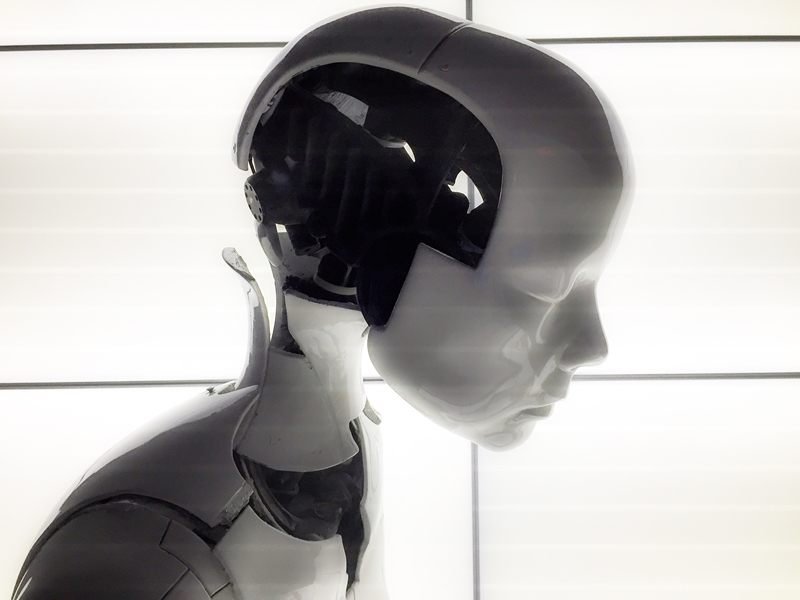AIs writing screenplays. Yes, you read that correctly.
AIs writing screenplays. A few simple words, but they’re already enough to set some hearts beating a little quicker, blood pressure rising as we think of dystopian futures where the machines have won, where we become second beings to a higher race of emotionally intelligent robots.
Okay, so we’re not there yet. In fact, we’re far from it. The screenplay we’re writing about was created by an AI known as long short term memory, LSTM, or Benjamin (the name it gave itself – yep, we’re not joking). And its film, “Sunspring”, was met with surprisingly little fear. Instead, it received critical acclaim and quite a bit of laughter.
The future’s “Sunspring”?
The film is set in a strange future, potentially on a space station, where people wear shiny gold jackets and play around with computers (something the AI must have learnt were key components of a great sci-fi movie).
Its key plot involves a love triangle, and it’s essentially nine minutes of strange, slightly incomprehensible yet nevertheless rather poetic sentences and the occasional inexplicable scene (at one point someone coughs up an eyeball).
Even funnier than the screenplay is the interview conducted with Benjamin when its play won best film at the Sci-Fi London contest. This will give you a flavour of what “Sunspring” itself is like:
Interviewer:
“What’s next for you?”
LSTM/Benjamin:
“Here we go. The staff is divided by the train of the burning machine building with sweat. No one will see your face. The children reach into the furnace, but the light is still slipping to the floor. The world is still embarrassed.
The party is with your staff.
My name is Benjamin.”
Not a bad way to announce your name, is it?
 Benjamin is a long short term memory AI, often used for text recognition.
Benjamin is a long short term memory AI, often used for text recognition.How does Benjamin do it?
Benjamin is the creation of director Oscar Sharp and AI researcher Ross Goodwin. It’s a recurrent neural network, a type of AI often used for text recognition. To learn, it was given a range of classic sci-fi screenplays – from “Independence Day” and “The X-Files” to “Ghostbusters” and “Interstellar”. It dissected each film down to letters so that it could learn what letters normally follow each other, and then built up to words and phrases from there.
An LSTM can sample much longer strings of letters than previous AIs, so works well for writing longer texts. It’s also better at creating original sentences instead of just cutting and pasting.
Eventually, Benjamin learnt how to write a screenplay, including stage directions, music and character lines. And now we have the emotional roller coaster that is “Sunspring”.
What do businesses need to know?
Those in the creative industries don’t need to start worrying about their jobs just yet. The screenplay Benjamin produced isn’t exactly flawless, and we’re probably not heading for an Orwellian future any time soon.
If AI writing does improve, however, there are many industries the technology may be able to complement. The most obvious is marketing and communications. There’s already an AI that analyses people’s facial reactions to certain images in order to gauge their emotional response and recommend tailored holidays and products.
An AI that can create great adverts after learning what creates a purchasing impulse in a viewer could be an interesting development.
Likewise AI has begun to embrace more mundane writing, with many AIs now taking care of things like press releases, memos and emails, leaving you to more important business tasks.
The technology is far from perfect, but it’s certainly an interesting time for creative AI.
To make sure your business is staying ahead of the technology curve, consider hiring IT consultants. The experts at LOOKUP can provide tailored technical expertise to small businesses.
Contact us today for more information.
